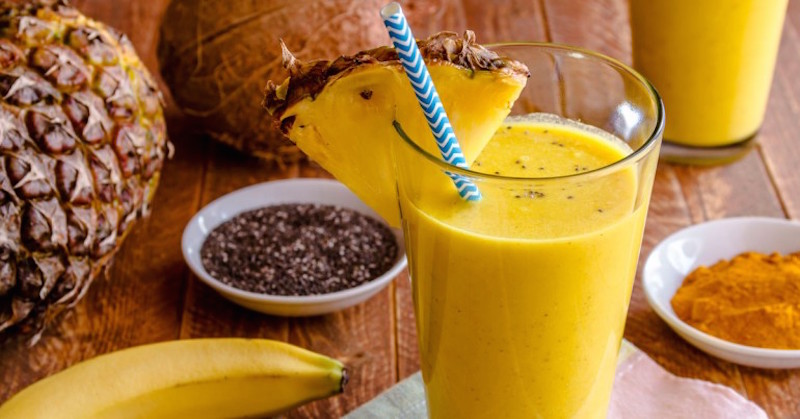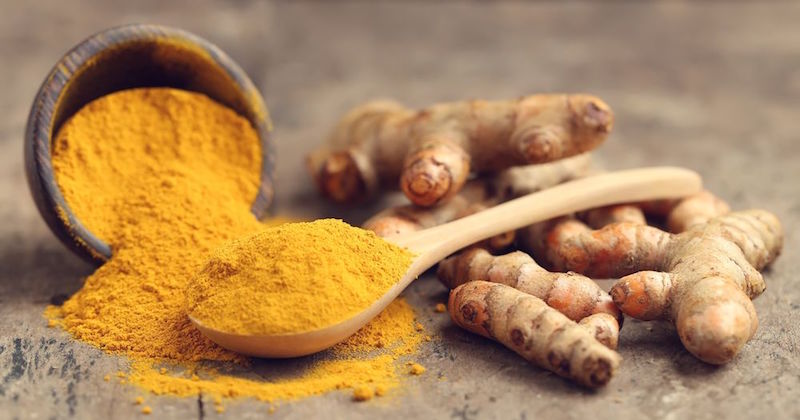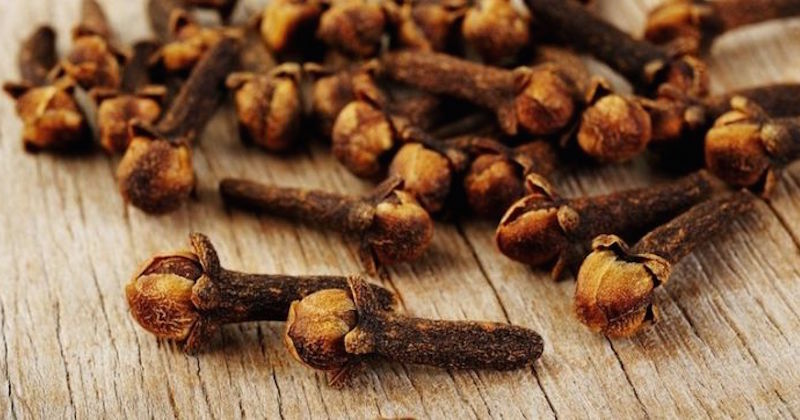7 Safe And Natural Alternatives To Aspirin That Won’t Give You Stomach Ulcers
Last updated on
Aspirin is a non-steroidal anti-inflammatory drug (NSAID) used to treat pain, fevers, headaches, and prevent heart disease. It’s a wonder that some people continue to take aspirin daily as a way of preventing heart disease. Why, you ask? Because it may just be one of the worst over-the-counter drugs out there.
Some of the most commonly reported side effects of regular aspirin-use include ulcers, heartburn, indigestion, and nausea. All of these ailments are a sign that your gut is in danger. Your gut is the gateway to your body’s health. The last thing you want to do is ignore these warning signs, but what else can you do when you’re in pain? Try these 5 natural pain-relieving techniques and foods you can take instead!
Related reading: Safe painkillers that don’t cause liver toxicity.
Safe Natural Alternatives To Aspirin
1. Bromelain

Bromelain is a phytonutrient in pineapple that acts as a natural pain-reducer. Research shows that it reduces levels of prostaglandins, which are hormones that induce inflammation.
Bromelain may benefit individuals suffering from arthritis and conditions marked by musculoskeletal tension (like TMJ syndrome), in addition to those suffering from other inflammatory ailments like gout and asthma. The enzyme also promotes healing in muscles and connective tissues.
2. Magnesium
You may already know that magnesium is a natural painkiller for bone and joint pains, and muscle soreness. It is especially useful to remedy heel spur pain and stop muscle cramps.
You can get the most of magnesium from epsom salt by soaking the affected area, or having an epsom salt bath. Epsom salt is able to painlessly draw out toxin-causing pain to relieve your body of pains associated with inflammation.
When in pain, soak in this amazing salt bath and feel a significant improvement to your body.
3. Turmeric

Unless you’ve been living under a rock, this golden-yellow spice has been experiencing a surge in popularity as a superfood in the last few years.
This is because, among other things, turmeric is a potent natural pain reliever. So potent that a study concluded that turmeric is more effective than ibuprofen in reducing the pain in people suffering from osteoarthritis in the knee.
The source of this pain relief is the compound curcumin which gives turmeric its unique color.
You can eat fresh turmeric root, or find turmeric in its powdered spice form, or as a supplement at your local health food store. The typical recommendation is to work a teaspoon of turmeric into your daily routine in either food or drink. Here are 5 easy ways to add turmeric in your beverages to benefit from its anti-inflammatory properties.
Turmeric and medications cannot mix. Please read more here if you’re on any medication.
4. Cloves

Cloves are well-known for the warm and sweet taste they add to ginger bread, but did you know this unique spice is an effective natural pain reliever? The pain-relieving powers of cloves come from its unique combination of volatile oils and flavonoids.
Much of the anti-inflammatory activity comes from the volatile oil eugenol which is often used by dentists to bring pain relief during tooth extractions and root canals. Aside from pain relief, cloves are useful for treating the symptoms of nausea and colds. Biting on a clove may bring relief to a toothache.
To make use of cloves for pain relief, you can also find them in capsule, powder, or essential oil form at your local health food store. Like with most essential oils, you must mix clove oil with a carrier oil before topical applications.
5. Anti-Inflammatory Oil
Depending on where your pain is, oils that are rich in essential fatty acids may be highly anti-inflammatory and powerful for reducing pain, whether to be applied topically or taken orally:
- Premenstruation cramps—take about 1.5g of evening primrose oil starting on the first day of period and continuing until ovulation.
- Carpal tunnel—massaging flaxseed oil into your wrists may relieve carpal tunnel pain. Regularly applying the oil may even stop the need for surgery. Read more here.
- Inflammatory pains from minor injuries and arthritis flare-ups—apply arnica oil twice daily on your bruises and joint pains can help reduce inflammation. Be careful not to apply the oil on broken skin.
- Fibromyalgia and muscle cramps—peppermint oil is a natural painkiller and muscle-relaxant. Apply the oil on the pain and massage on affected area, to gain some relieve on pain.
- Headaches—Place a few drops of peppermint oil or lavender oil into your palms, rub them to warm them up and apply to your forehead, temples and back of neck to find quick relief.
6. Heat and Ice

So when do you use one over the other? When the pain includes swelling and inflammation like with a sprain, you’ll normally want to apply a cold pack. This will bring swelling down. Applying something cold to your body is a great way to promote healing.
When the inflammation has calmed down, applying heat can help relax the affected area. If the problem is arthritis, joint pain, and stiffness, using a hot pack is your best bet. Try this out next time you or a loved one experiences pain and see the relief almost instantly!
7. Mustard Seeds Oil
Apply mustard seeds oil to injured area to improve blood flow and provide some pain relief. Mustard seeds are a good source of selenium, magnesium and omega-3 fatty acids, all of which have medicinal properties that may help to improve arthritis and inflammation symptoms. Make your own mustard cream for back pain relief.
References:
https://www.healthline.com/health/pain-relief/surprising-natural-pain-killers
https://theheartysoul.com/aspirin-causes-nasal-disease/
Some of the links I post on this site are affiliate links. If you go through them to make a purchase, I will earn a small commission (at no additional cost to you). However, note that I’m recommending these products because of their quality and that I have good experience using them, not because of the commission to be made.
Comments
Leave a Reply
































 JOIN OVER
JOIN OVER
Thank you so much, Sara. I find your information very helpful to me as a nutritionist to help my friends and family here. I would like to help more people like you through social media.